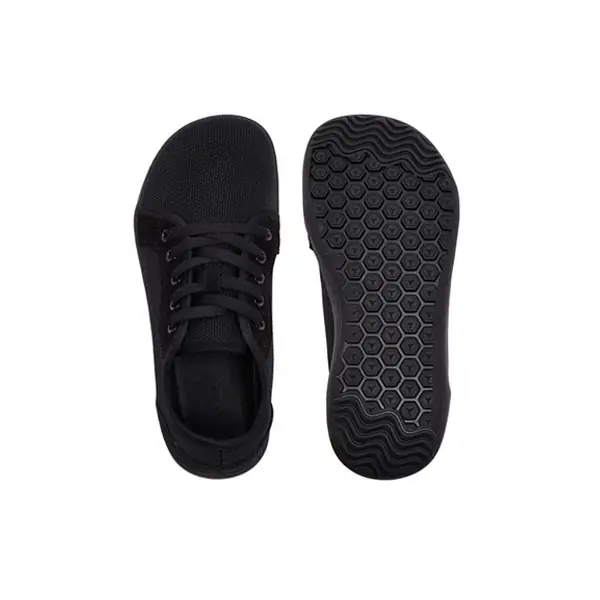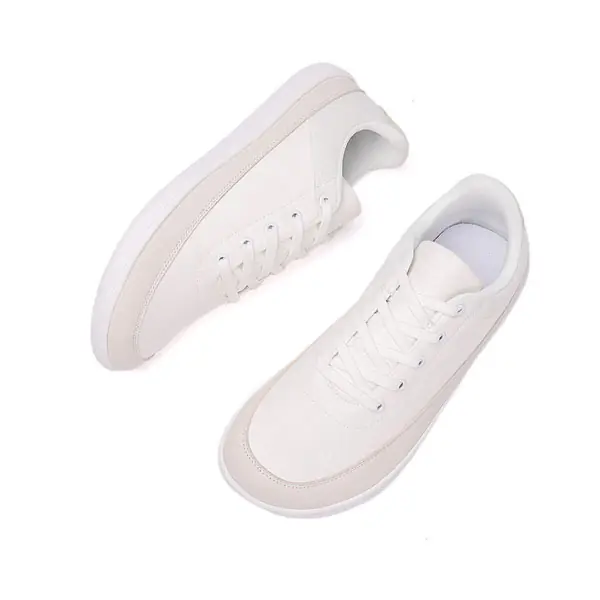Are Barefoot Humans Healthier Than Shoed
In today’s modern world, where cushioned footwear dominates our daily lives, an intriguing question arises: are barefoot humans healthier than their shoe-wearing counterparts? As we explore this fascinating topic, we’ll delve into scientific evidence and practical insights about how our choice of footwear impacts our overall health and well-being.

Table of Contents
The Natural State of Human Feet
The human foot is a masterpiece of engineering, evolved over millions of years to support our unique bipedal locomotion. Our ancestors walked barefoot, allowing their feet to move, flex, and adapt naturally to various surfaces. Today’s trend toward minimalist barefoot shoes attempts to recreate this natural state while providing necessary protection.
Understanding the Impact of Modern Shoes
Modern shoes, while protective, often restrict natural foot movement and can lead to various issues:
- Reduced sensory feedback from the ground
- Weakened foot muscles
- Altered walking patterns
- Compromised body alignment
- Limited toe spread and movement
The Benefits of Barefoot Walking
Walking barefoot, also known as “earthing,” offers numerous health benefits:
- Enhanced Proprioception
- Better awareness of foot position
- Improved balance and stability
- Increased ground feel
- Strengthened Foot Muscles
- Natural arch support development
- Better toe flexibility
- Improved foot mechanics
- Improved Body Alignment
- Natural posture correction
- Better weight distribution
- Reduced joint stress
The Science Behind Barefoot Benefits
Research shows that barefoot walking can positively impact:
- Foot muscle strength
- Balance and coordination
- Joint mobility
- Natural gait patterns
- Overall foot health
Transitioning to Barefoot Living
For those interested in experiencing the benefits of barefoot walking, custom barefoot shoes offer a practical solution. These shoes provide:
- Minimal cushioning
- Wide toe box
- Zero drop design
- Natural foot movement
- Ground feel protection
Health Considerations and Risk Factors
While barefoot walking offers many benefits, certain considerations include:
- Surface safety
- Weather conditions
- Individual foot conditions
- Transition period adaptation
- Environmental hazards
The Role of Barefoot Shoes in Modern Life

Modern barefoot running shoes bridge the gap between complete barefoot walking and traditional footwear, offering:
- Protection from hazards
- Natural movement allowance
- Minimal interference with foot function
- Versatility for various activities
Long-Term Health Implications
Studies suggest that barefoot living can lead to:
- Stronger foot architecture
- Better balance and stability
- Improved posture
- Enhanced movement patterns
- Reduced foot-related problems
Common Myths About Barefoot Walking
Let’s address some common misconceptions:
- “Bare feet are always dirty”
- “You need arch support”
- “Barefoot walking is dangerous”
- “It’s not practical in modern society”
- “Your feet will become calloused”
Frequently Asked Questions
How long does it take to adapt to barefoot walking?
Most people adapt within 4-8 weeks, but individual experiences vary.
Is barefoot walking suitable for everyone?
While beneficial for many, those with specific foot conditions should consult healthcare providers first.
Can I walk barefoot in cold weather?
With proper acclimation and appropriate minimalist footwear, yes, but take precautions in extreme conditions.
What surfaces are best for barefoot walking?
Natural surfaces like grass, sand, and earth are ideal for beginning barefoot walking.
Making the Transition
To successfully transition to barefoot walking:
- Start gradually
- Choose appropriate surfaces
- Listen to your body
- Use transitional footwear
- Practice proper technique
Conclusion
The evidence suggests that barefoot humans often demonstrate better foot health and natural movement patterns compared to those who consistently wear conventional shoes. While modern life may not always allow for completely barefoot living, the growing availability of minimalist footwear options provides a practical compromise. By understanding and applying these principles, we can work toward better foot health and overall well-being.Remember, whether choosing to go completely barefoot or opt for minimalist shoes, the key is to allow your feet to function as naturally as possible while providing appropriate protection for modern environments. Visit our barefoot shoes manufacturer to explore options that can help you experience the benefits of natural movement while maintaining necessary protection.
